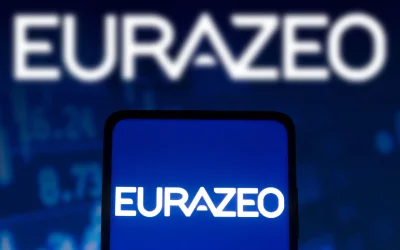More than 20 private equity firms are in the running to invest €300m in the Bundesliga, as Germany’s top football league embarks on a radical plan to roll out an international online subscription service.
Deutsche Fussball Liga (DFL), the body that runs Germany’s top two divisions, hatched the plan earlier this year after multiple firms approached it with emergency funding as the pandemic led to the postponement of matches and closure of stadiums.
Alongside plans for an “over the top” internet subscription service to screen games across the Middle East, the DFL is offering a minority stake in a new digital media company that will sell the Bundesliga’s international rights contracts, data services and other commercial propositions.
The league, which has hired the Japanese bank Nomura to field inquiries, is seeking to sell a stake worth between €200m and €300m, valuing its new company at more than €1bn, according to several people with knowledge of the discussions. The new company will not control the German league’s domestic TV rights, worth over €1.1bn a season.
People familiar with the matter said more than 20 groups expressed an initial interest. These included Advent International, Apax, Ardian, Apollo, Bain Capital, BC Partners, BDT Capital, Blackstone, Bregal, Bridgepoint, Carlyle, Centerbridge, Cinven, CVC Capital Partners, Endeavor jointly with Silver Lake, General Atlantic, Goldman Sachs Principal Investment, IGC, HIG, KKR, Nexicap, Permira, Searchlight and TPG.
The companies either declined to comment or did not respond to requests for comment. The DFL declined to comment.
Bundesliga chief executive Christian Seifert will inform German clubs at a meeting on December 7 about plans to create an auction between competing bidders.
The scale of initial interest in the deal highlights how private equity firms are seizing the opportunity the pandemic has created to invest in the world’s most popular sport. Buyout groups are rushing to bankroll sports tournaments, in part because they need “more creative” ways, such as taking minority stakes, to deploy the huge sums of money they are sitting on.
CVC and Advent are negotiating a €1.6bn deal to acquire a stake in Serie A, Italy’s top football division, that would value the company owning the league’s broadcasting rights at €16bn. A number of companies, including TPG, have approached the English Football League, the body that runs England’s lower professional divisions.
Bundesliga officials insist they are in a stronger financial position than rivals. In June, the league’s domestic TV rights were sold for €4.4bn over four years from 2021, 5 per cent less than the previous deal. However, German football was among the fastest to return following spring lockdowns, avoiding the large rebates to broadcasters and sponsors that hit England’s Premier League.
The push for funding is designed to spark new growth. The DFL is planning a new internet service in the Middle East after beIN Sports, the Qatar-based broadcaster, declined to renew its deal. The Bundesliga is instead working with Charlton, the Israeli pay-TV group, to launch the online service in the region, according to people familiar with the plan.
The plan is also aimed at attracting media companies in the United Arab Emirates and Saudi Arabia, which could be sold rights to screen matches while potentially outsourcing expensive production and technology needs to Bundesliga and Charlton.
This idea has gained traction at the DFL after the UAE signed a historic peace deal with Israel in September, leading to new business ties between the countries. Saudi Arabia has created a new sports company seeking to acquire the rights to screen sporting events. Any private equity deal could then provide the cash to launch the online service in more countries.
Some private equity executives believe they can profit by drumming up greater competition among broadcasters to show the games outside Germany but others are more cautious, warning that investors would not have any direct involvement in running the league and with little influence on “improving the main product”.
Source: Financial Times




